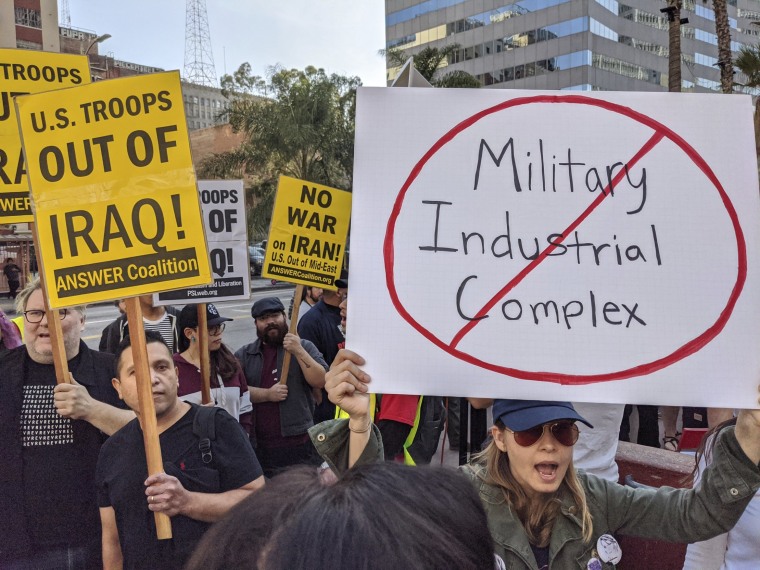The language of war is upsetting to many of the 136,000 people of Iranian ancestry living in Los Angeles, the epicenter of the Iranian-American community in the United States, after the killing of Iranian Gen. Qassen Soleimani.
The Los Angeles community took hold when Iranian Jews fled the country after the Islamic Revolution of 1979, which led to the republic's current religious leadership.
Yet many Iranian Americans fear for relatives still in Iran should war break out after the U.S. drone strike Friday that killed Soleimani.
"You're not going to see people taking to the streets in excitement and glee over this in L.A.," said Adrin Nazarian, who said he is the first California assemblyman of Iranian descent. "Even if some folks are happy there’s one less brutal individual in the world, the concern is what's going to happen next."
President Donald Trump tweeted Saturday night that if Iran retaliates for Soleimani's killing, the U.S. has a list of 52 targets identified for subsequent airstrikes.
The Los Angeles area has more residents of Iranian ancestry than any other U.S. city, according to a 2017 analysis from the Brookings Institution.
Iranians of Jewish faith have four-decade roots on L.A.'s Westside, where communities are sometimes referred to as Tehrangeles. In Beverly Hills, about one in five residents is said to have Iranian heritage.
Nazarian, who represents the Sherman Oaks neighborhood in Los Angeles, said many expatriates left Iran during the revolution because they were religious minorities in a Muslim state and faced the likelihood of violence.
That could explain why some Iranian Americans are laying low amid the saber-rattling, he said.
"A lot of times you’ll see some folks not wanting to be too vocal outside Iran out of fear for consequences for their loved ones," Nazarian said.
UCLA sociologist and Middle East expert Kevan Harris said gauging the politics of Iranian Americans is difficult because they are spread throughout the U.S. and represent many generations. There are also Iranian Muslims in the U.S.
"Iranians tend to be pro-engagement with the Islamic Republic, and pro-peace, even if they are divided on support for the government itself compared to alternatives," he said by email.
At the same time, Harris said of Soleimani, who enforced the Islamic regime's sphere of influence with violence, "They likely have no love lost personally for him."
Shahbod Noori, CEO of L.A.-based Tehran Weekly Magazine, said by email that the Iranian Americans he has spoken with "are happy" about Soleimani's demise.
"He was a killer," he said.

